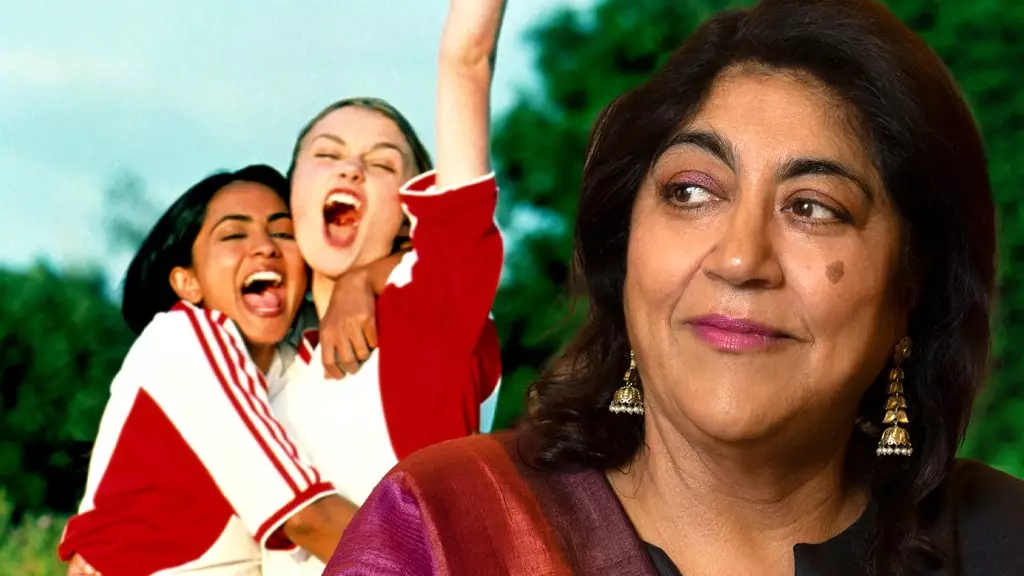More than two decades after its debut, *Bend It Like Beckham* remains a pivotal film in the landscape of sports cinema and cultural storytelling. Its significance far eclipses its initial modest budget and box office performance. This beloved film not only celebrated the spirited pursuit of dreams but also chipped away at societal barriers regarding gender, ethnicity, and sports. The news that a sequel is actively being developed signals a recognition that the story—and its impact—are far from exhausted. It’s a testament to the enduring power of narratives rooted in defying expectations and empowering marginalized voices.
The original film’s ability to resonate was rooted in its authenticity, humor, and heartfelt portrayal of young women challenging societal norms. Today, these themes are even more relevant as women’s football continues surging worldwide. The announcement of a sequel symbolizes an opportunity to rekindle the spirit of empowerment and to extend the cultural legacy established nearly a quarter-century ago. But it also raises questions about the responsibilities that come with revisiting such a culturally significant story. Will the sequel’s script honor the nuanced optimism of the original? Will it continue to inspire new generations as forcibly as it once did?
Building on Legacy: Navigating Expectations and New Horizons
Gurinder Chadha, the visionary behind *Bend It Like Beckham*, is wisely emphasizing the importance of crafting a strong, meaningful script before fully committing her cherished cast. This cautious approach is vital; audiences today are more critical and aware than ever. It’s not enough to mere nostalgia by rehashing old plotlines. The sequel must forge fresh narratives that honor the original’s message—about resilience, identity, and challenging societal restrictions—while also reflecting the enormous progression in women’s sports and advocacy.
Chadha’s intent to involve original cast members like Parminder Nagra and Keira Knightley hinges on their enthusiasm for the material. Their participation would lend authenticity, not only in terms of acting pedigree but in maintaining the heartfelt spirit that made the first film resonate. Her focus on character arcs indicates a desire to deepen storytelling—an essential move given how much the world has changed since 2002. The characters’ journeys must evolve convincingly, embodying the ongoing struggles and triumphs of women in football and beyond. This isn’t just about revisiting old characters—it’s about reimagining their futures in a way that feels authentic and compelling.
The Significance of Timing and Cultural Momentum
The choice to aim for a 2027 release aligns with both strategic and symbolic motives. Marking the 25th anniversary of the original film’s UK debut provides a meaningful milestone for celebration, reflection, and reinvigoration. More significantly, this period coincides with the rapidly expanding global spotlight on women’s football. With the FIFA Women’s World Cup scheduled to be hosted in Brazil in 2027, the sport’s cultural relevance has never been higher. This kind of timing ensures that the film’s message will resonate with a broad audience, leveraging the sport’s growing legitimacy and visibility.
Chadha’s recent interactions with influential figures like Emma Hayes, head coach of the U.S. women’s national team, highlight a deeper integration of real-world football insights into the project. Hayes’ own story of how *Bend It Like Beckham* transformed her perspective underscores the film’s ongoing cultural impact. The involvement of voices from the professional sports community roots the sequel in reality, making it more than just a nostalgic revisit—it becomes a commentary on progress, struggle, and the unrelenting pursuit of empowerment through sport.
Championing Change through Cinema and Sport
Chadha’s recounting of her initial struggles to get *Bend It Like Beckham* made reveals a folklore of perseverance. Her early battles against skepticism reflect a broader truth: revolutionary stories often face resistance initially. She was ahead of her time, championing a narrative that celebrated young girls’ love for football amid societal disapproval. This perseverance paid off, not only through the success of her film but in the cultural shift it helped inspire.
The potential sequel’s power lies in its ability to harness this legacy and push it further. It promises to be not just a continuation of characters’ stories but a bold statement about societal progress. Women’s sports have evolved into a global phenomenon, and the film can serve as a mirror and catalyst for this change. The narrative can highlight new barriers, emerging heroes, and the ongoing fight for equality, giving audiences both joy and insight.
The involvement of political figures like Lisa Nandy underscores the importance of such cultural narratives—films like *Bend It Like Beckham* help shape national identity by showcasing diversity, resilience, and possibility. The film’s status as a “cultural touchstone” is more than mere admiration; it’s a reminder that storytelling can influence societal attitudes and inspire action.
The planned return of *Bend It Like Beckham* signifies an emotional and cultural renewal. For many, the original was more than a movie—it was an anthem of hope, perseverance, and breaking barriers. As the sequel gestates, it carries the weight of expectation to fulfill the promise of empowering stories—that even in the face of societal skepticism, dreams are worth fighting for. This project holds serious potential: to ignite renewed enthusiasm for women’s sports, challenge societal stereotypes, and sustain a legacy that no longer needs to be just a nostalgic memory but an ongoing movement.
The excitement isn’t just about revisiting beloved characters; it’s about reaffirming what they stand for—dreams bigger than societal limitations. Chadha’s commitment to crafting a story that balances humor, heartbreak, and hope shows a sincere belief in the power of storytelling to shape a better, more inclusive future. With the right script and cast, the sequel could reaffirm *Bend It Like Beckham* as not only a film that changed minds but one that continues to shape lives.

